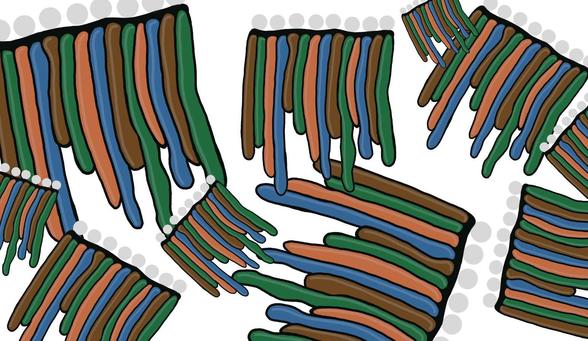See Don't Judge, and Listen case studies in the blog post here.
Racism and stigma are barriers to Aboriginal and Torres Strait Islander people seeking support for mental health and alcohol and other drug use. Strengthening cultural appropriateness and understanding, and harnessing input from Elders could be the key to better treatment, a new report has found.
The Queensland Mental Health Commission’s Don’t Judge, and Listen report is the outcome of research into the effect of stigma and discrimination on Aboriginal and Torres Strait Islander people with a lived experience of alcohol and other drug use.
It considers the negative stereotypes that affect the social and emotional wellbeing of all Aboriginal and Torres Strait Islander people, irrespective of whether they engage in alcohol and/or other drug use.
Queensland Mental Health Commissioner Ivan Frkovic said the project had been designed to give Aboriginal and Torres Strait Islander people a strong voice in research, rather than to speak on their behalf, and was guided by their involvement.
“Research participants came from communities across Thursday Island, Cairns, Yarrabah, Rockhampton, Woorabinda, Mt Isa and Inala,” Mr Frkovic said.
“The research found that Aboriginal and Torres Strait Islander people experience multiple forms of stigma and discrimination relating to race, and are stereotyped when it came to alcohol and other drug use, despite Aboriginal and Torres Strait Islander people being less likely to drink than non-Indigenous Australians.
“This stigma and discrimination often prevents people from seeking help – alongside issues such as a lack of access to culturally appropriate services.
“However, the project found that strong kinship support and strength in culture and community helped build resilience and improve support.
“The report shows the importance of ongoing cultural training, having services with Aboriginal and Torres Strait Islander staff, including Elders, and cultural healing as part of the solution.
“This reaffirms our commitment to working with Aboriginal and Torres Strait Islander communities and organisations in developing reform options to reduce racism and strengthen social and emotional wellbeing,” Mr Frkovic said.
Queensland Aboriginal and Islander Health Council (QAIHC) Alcohol and Other Drugs Manager Eddie Fewings said he hoped the report would lead to positive change.
“While the Don’t Judge, and Listen report has given voice to a small number of the most vulnerable and traumatised people in our communities, it is sadly very much the daily experience of most Aboriginal and Torres Strait Islander people with problematic substance use issues,” he said.
“In asking for and receiving their stories, we assume a responsibility to ensure the report findings maximise the opportunities that will significantly and positively change those stories in this generation and those to follow.”
Queensland Network of Alcohol and Other Drug Agencies (QNADA) CEO Rebecca Lang said the work highlighted how punitive approaches to substance use served to drive people away from help and further into problematic use.
“It provides a perspective on experiences of stigma and discrimination that remind us that substance use is sometimes a way for people to cope with other types of discrimination, including those stemming from racism in our communities and institutions,” she said.
“We have to elevate and amplify the voices of our first nations communities in policy and system planning, and this report provides a range of excellent ideas on where to start.”
Queensland Aboriginal and Torres Strait Islander Child Protection Peak (QATSICPP) Senior Workforce Development Officer Dion Tatow assisted with the project.
“This report clearly highlights that racism must be addressed in legislation, policies and service delivery as the first step to removing the barriers for Aboriginal and Torres Strait Islander people seeking support to begin their recovery from problematic alcohol and other drugs use,” he said.
The Commission is grateful to Aboriginal and Torres Strait Islander community members and service providers who took part in the research, and thanks them for sharing their insights and experiences.
The Commission also thanks key stakeholders QAIHC, QATSICPP and QNADA.
The project was led by ACIL Allen Consulting in partnership with the Seedling Group. See the final report here.
Media: Katie Rowney, katie.rowney@qmhc.qld.gov.au, 0419 787 551
Artwork by Ailsa Walsh. See more of her work here.

